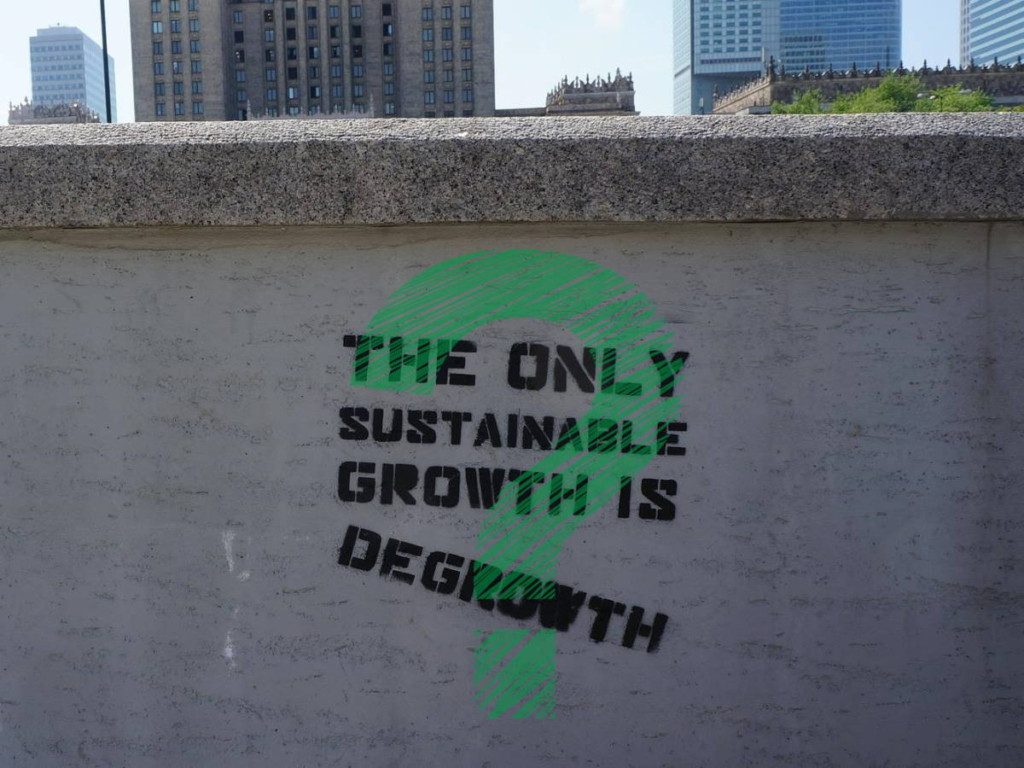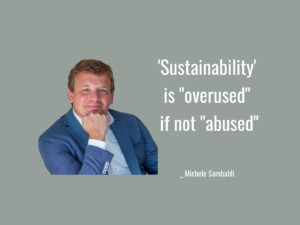“GT” Insight Bites: Diverse perspectives on economic degrowth and tourism

Tourism in the post-pandemic ‘new normal’ should be informed by economic degrowth, say some tourism academics and industry commentators who believe we can and should consume — and travel — less.
If you are an academic or commentator, how would you summarise your views on degrowth for a general industry audience?
If you are a travel & tourism practitioner, what might degrowth mean for your organisation and the source markets and destinations in which you operate?
For this “GT” Insight Bites, your correspondent put the proposition and questions above to a range of travel & tourism stakeholders, and invited written responses of up to 300 words. Thanks to all who responded. Their replies appear in order of receipt.
- Jim Butcher — ‘We can do better than the bleak austerity of degrowth’
- K Michael Haywood — Reconciliation, pragmatism must end ‘war over tourism’
- Andrew Chan — Livelihoods depend on tourism’s regrowth, not degrowth
- Thomas Bauer — Tourism growth, not degrowth, will be the future
- Yana Wengel — From economic growth to balance and ‘good living’
- Stephen Pratt — Tourism degrowth is a ‘noble quest’, but ‘wishful thinking’
- David Newsome — Doing travel better through ecotourism is the way forward
- Ivana Damnjanović — Tourism degrowth is not a one-size-fits-all solution
- Greg Bakunzi — Rwandan development, jobs affected by COVID degrowth
- Ronda Green — On behalf of wildlife and eco-tourists …
- Edwin Magio — Don’t overlook this effective sustainable tourism model
- Sudipta K Sarkar — Tourism degrowth is ‘regressive’; a ‘momentary delusion’
- Peter Semone — ‘Degrowth will be forced upon the tourism industry’
- Gabby Walters — What happened to ‘build back better’? There is still time
- Ken Scott — Economic degrowth is a ‘disastrous fantasy’
- Jonathon Day — Tourism degrowth is ‘easily misunderstood’
- Bronwyn Hutchison — ‘Our love affair with growth must end’
- Erika Jacobson — Maybe the tourism industry is placed to lead …
- What do you think?
Previous “GT” Insight Bites:
‘We can do better than the bleak austerity of degrowth’
Jim Butcher, Reader, Canterbury Christ Church University, UK
Historically, economic growth correlates with better-educated, healthier societies, shielded from the cruel vagaries of nature. Political movements competed over who could best cultivate growth and development.
While large swathes of the planet are yet to benefit from growth-led modernity, today degrowth is fashionable in the academy, presented as a radical challenge to the system.
Relatively few people are international tourists. Hundreds of millions lack the modern conveniences and travel opportunities that the privileged benefit from. Yet we are told that we have surpassed the limits to growth, and that climate change is an existential emergency.
Fortunately, it’s not true.
Just as Thomas Malthus was proved wrong about food production limits, modern neo-Malthusians have been wrong too. Their mistake? For Malthus, Ehrlich, the Club of Rome’s ‘Limits to Growth’, and Greta Thunberg, science and ingenuity are assumed static; people are the problem, not the solution.
By demanding that we retreat in the face of environmental problems, today’s degrowthers divert attention from the important, progressive question: How do we expand our economies so that good things are available for all?
This humanist view holds that societies can progressively tackle environmental challenges as they develop. It’s possible: Growth-oriented societies enable surpluses for investment in the technologies that will enable a switch to ‘clean’ energy — nuclear, renewables, hydrogen — a switch as revolutionary as the adoption of carbon-based fuels that powered the industrial revolution.
Tourism degrowth is a retreat from real problems into a romanticised local idyll; lovely for tourism, disastrous for development. It eschews human-created solutions and possibilities. And it can be pretty sanctimonious, with one exponent declaring “Holidays are for lives not lived well at home”.
We can do better than the bleak austerity of degrowth. Let’s imagine scientifically- and technologically-enabled leisure-rich futures, not just for the wealthy, but for all.
Reconciliation, pragmatism must end ‘war over tourism’
K Michael Haywood, Professor Emeritus, University of Guelph, Canada
To appreciate the rallying call for a new economic paradigm based on degrowth, it’s important not only to appreciate the arguments in its favour, but also to comprehend some counter-arguments.
With reference to peoples’ need and insatiable urge to travel, and the world’s substantial economic dependence on tourism and associated activities, a furor in favour of degrowth has seemingly generated a war over tourism. While there are a multiplicity of views, the need for reconciliation and adoption of pragmatic policies — country-by-country, community-by-community, and company-by-company — couldn’t be more urgent.
Of current and immediate interest is the call for social-technical innovations to resolve the numerous perils triggered by climate and environmental change. Indeed, with the process of destination development continuing unabated, it’s vital that we focus our attention on the largesse of the what, who, and why of development; and, most definitely how tourism’s scope and scale, spatial and physical components could be better protected, maintained, and managed.
What we are witnessing is the continuing evolution of the Tourism Area Life Cycle Model. While solutions associated with operationalising degrowth have relied on various approaches to altering peoples’ social and cultural behaviours, and re-jigging the components of demand (de-marketing) — even de-marketing visitor relationships that communities do not value — there are additional and related solutions: Obvious is the need for dispersion to resolve overcrowding in place and time, and thereby annul under-tourism in adjacent or complementary places.
More important, yet rarely addressed, is the absolute need to clarify the purpose of purpose for communities-as-destinations — making it real — so as to ensure we work more collaboratively to nullify tourism’s untoward externalities and generate real and more meaningful “wellth” for all.
That is to say: Without ever destroying peoples’ desires to travel the world and enjoy its pleasurable experiences, cultures, and nature’s wonders and worth.
Livelihoods depend on tourism’s regrowth, not degrowth
Andrew Chan, Founder & CEO, ACI HR Solutions
Whilst some academics and industry commentators have publicly voiced their case for economic degrowth, with an emphasis on less travel and reduced consumption, my belief couldn’t be more opposite.
During nearly three years of unprecedented doldrums, the travel sector was brought to its knees, crippling the livelihoods of many across the globe who rely heavily on tourism dollars. The mere thought of such rhetoric simply makes no sense.
I appreciate that we can see the peaks of the Himalayas again from India. I can attest that the air is indeed cleaner in Hong Kong. And there are many other environmental benefits of having had a much-reduced carbon footprint since COVID brought the industry to a standstill. However, to purposely suppress the rebound is a pill that’s hard to swallow for many in the trade.
Sustainability and the environment are definitely important topics, and they are interlinked with the travel sector. However, so too are the jobs travel & tourism creates across the globe, especially in developing countries.
The travel industry has traditionally provided job opportunities and education to those that may not otherwise have had it. I’m sad to think about what may have happened to some since the pandemic began.
What we should continue to focus on is educating operators and consumers. COVID has undoubtedly given us all a clear reference of what carbon reduction could look like. It should not be at the expense of the regrowth the industry deserves.
Tourism growth, not degrowth, will be the future
Thomas Bauer, Adjunct Professor, The University of the South Pacific, Fiji
There will be no degrowth of tourism beyond this pandemic.
Despite all the fine words spoken and published by academics, international organisations, and communities after the pandemic we will simply go back to the way we travelled and conducted tourism in the past.
The global population will soon reach 8 billion — there were 2.7 billion when I was born — and many of them will have the financial means to travel.
They may travel domestically in the first instance but in the longer term will seek out destinations further afield.
The accommodation and transport industries have been hit hard by the COVID pandemic. Companies will do everything possible to make up for the losses they suffered.
Growth, not degrowth, will be the future.
From economic growth to balance and ‘good living’
Yana Wengel, Associate Professor, Hainan University — Arizona State University Joint International Tourism College, China
The established trajectory of development through capitalism leads to economic inequality and environmental degradation. Unfortunately, the concept of sustainable development has failed to address these challenges.
Challenging Western universalism, we can look at strategies united under the umbrella of degrowth.
Degrowth rejects growth that focuses primarily on GDP, and aims to balance welfare and well-being in society following ethical and ecological principles. Degrowth requires a change in consumer habits, and the development of a responsible and thrifty society that does not storm shopping malls on Black Friday.
Looking away from the West, we see progressive economic policies penetrating local cultures in the Global South. This is not about glocality — when the McDonald’s in Cairo acquires Arab features — but rather it is about the post-colonial expansion of space for concepts of the common good.
One example is the sumak kawsay or buen vivir concept spread across several cultures in Latin America. Buen vivir translates as ‘good living’, and it is a kind of folklore; a system of ideas about crossing economic interests with a culture of the common good, local traditions, and concern for ecological balance, without increasing consumption.
General well-being is at the centre of the buen vivir philosophy. It is not a reactionary doctrine of returning to roots. It does not call for abandoning the economic benefits that accrue from technology and innovation; you just need to make sure that they are in harmony with local cultural traditions and do not harm the environment.
In its economic programme, Equador integrated the principles of buen vivir, which were borrowed from the Quechua Indians. The results are impressive: Between 2006 and 2012, the poverty rate fell by 12%, and investment in the education system increased more than eight times.
Tourism degrowth is a ‘noble quest’, but ‘wishful thinking’
Stephen Pratt, Professor and Deputy Head, School of Business & Management, University of the South Pacific, Fiji
While the idea of economic degrowth involving less travel is a noble quest, it is essentially wishful thinking. There are several problems:
- Tourists are taking revenge on the Coronavirus by catching up on their travel.
Revenge tourism is likely.
With borders closed, residents living under various lockdown scenarios, and pandemic fatigue, some destinations will be inundated with tourists when those conditions lift.
Tourists who have deferred their trips will seek to ‘catch up’ on holidays missed over the pandemic period. There is evidence that this happened before. In South Korea, following the global financial crisis and the Middle East Respiratory Syndrome, tourism arrivals exploded.
- Virtual tourism may stimulate demand, rather than satiate it.
Recent research suggests that virtual tourism can motivate in-person visits. A large majority (85%) of those who virtually visited destinations commented that they would choose one of the tourism destinations for an on-site visit after the pandemic is over.
- Destinations Marketing Organisations are paying tourists to travel.
Rather than prioritise sustainability, destination marketing organisations are subsidising more travel. In May 2021, at least seven destinations were incentivising travel for when the pandemic ends. Sicily and Italy were offering to reimburse tourists 50% of their airfare along with giving one-night free accommodation on every three-night booking. Cyprus was offering to pay for the vacation of any tourists who caught COVID-19 while visiting the island.
- Why would tourism businesses want fewer tourists?
Regardless of how environmentally and socio-culturally sustainable a tourism business is, one criteria for economic sustainability is to generate an income and at least break even. While the tourism sector might argue for degrowth — in the form of fewer tourists — to benefit society and the environment, very few individual businesses will want fewer customers.
Doing travel better through ecotourism is the way forward
David Newsome, Associate Professor of Environmental Science, Murdoch University, Australia
Degrowth in the tourism context has been suggested as a way to reduce our carbon footprint, but it is also about appropriate development and engaging local communities in sustainable practices.

It is important to acknowledge that the tremendous growth in international ecotourism has done a lot to conserve wildlife, such as the mountain gorilla, and halted the catastrophic destruction of biodiversity in places, such as in Madagascar.
Ecotourism revenues have built schools and hospitals and provided incomes for local communities who would otherwise have cut down their forests and remained hungry unless they ate the wildlife that lived around them.
For the numerous nature-based destinations that rely on international visitors, degrowth is not necessarily the answer, providing that overtourism and unsustainable practices are identified and resolved.
In a world concerned about climate change, loss of biodiversity, and environmental degradation, authentic ecotourism has the capacity to contribute financially in a ‘green way’, increase support for nature conservation, halt illegal activities, and lift host communities out of poverty.
Degrowth is not about avoiding international travel but doing it better. There may be pressure for more profit, but what we need is more protected areas with sustainable ecotourism ventures operating within them; tourism businesses that limit visitor numbers and educate people to conserve natural heritage.
It is particularly important for international visitors to engage in the valuation of nature by sharing their wealth and learning how they can make a difference. The discerning ecotourist can then, as I have done, buy some rainforest, contribute financially to conservation organisations, join local community tree-planting programmes, and learn how to conserve nature and protect wildlife.
If degrowth is about responding to climate change, then responsible travel that values nature and our place in it is the way forward.
Tourism degrowth is not a one-size-fits-all solution
Ivana Damnjanović, Vice-dean for international cooperation, Faculty of Health and Business Studies at Singidunum University, Serbia
We live on a finite planet. We only have one. Therefore, we need to reposition our self-image within the life-system we belong to.
Tourism evidently has harmful and reviving effects locally, which can have cumulative effects globally. Addressing them needs acknowledging that there are no two same destinations.
And there are no one-size-fits-all solutions. An approach that could be vital for one destination’s well-being may be downright detrimental (or merely inapplicable) for another.
Degrowth is no exception.
From both local and global perspectives, travel & tourism needs to change. The responsibility for this lies equally on tourists and the industry. We cannot and should not stop travelling. Probably, “HOW?” and “WHY?” are more purposeful questions than “HOW MUCH?”.
Less travel is not necessarily the answer, as degrowth entails.
Some destinations suffer from undertourism, deprived of the opportunity to benefit from sustainable and responsible tourism experiences co-creation. However, some destinations are collapsing under the weight of overtourism. For the latter, degrowth might be the solution.
Whether a solution is pro-growth or degrowth it should result from:
- A consensus of all stakeholders;
- Well-informed, educated, science-based decision-making that reflects a unique complexity of interdependencies;
- Considering the perceivable positive socio-economic and environmental effects of tourism together with its invisible costs; and
- Framing tourism simultaneously within its immediate surroundings and the global context, through multiple prisms.
Unless adequately prepared for tourism, or its degrowth, destinations risk a cascade of negative effects. Therefore, if degrowth is an answer to a destination’s tourism-induced problems, the destination still needs to re-calibrate and re-frame tourism, other affected industries, and its web of life in general. From there it can decide whether degrowth is best spatially/temporarily phased, or applied all at once.
Rwandan development, jobs affected by COVID degrowth
Greg Bakunzi, Founder, Red Rocks Initiative for Sustainable Development & Red Rocks Rwanda
Degrowth poses a strong critique of economic growth, which is seen as highly problematic and causally related to both social and ecological crises.
And, as you are aware, tourism combines mobility and hospitality, the two things the pandemic has made problematic.
The tourism industry is resilient. There is ample evidence to show that tourists are keen to resume travel post-COVID-19.
We predict that international tourist arrivals into Rwanda could grow again come 2023, and we hope that they return to pre-pandemic levels.
Tourists will be welcome, as their absence during the pandemic not only affected foreign exchange earnings but also various regional development projects and the job opportunities they bring, disrupting local communities as a whole.
Should the reduction in travel be longer lasting, owing to changes in tourist preferences or economic damage, we will be forced to embark upon a long and difficult journey to diversify into non‑tourism sectors. On the positive side, this will strengthen links between tourism and local agriculture, manufacturing, and entertainment sectors.
In any case, we are well prepared to implement the best strategies to curb the spread of COVID-19, and to welcome visitors again to Rwanda. Nearly 40% of our population have now received three COVID-19 vaccination jabs.
Tourism in Rwanda will flourish again as before the pandemic. At Red Rocks, we are encouraging more ecotourism — a fast-growing sector focused on conservation and local job creation — as it could give an additional boost to the industry with fewer negative social and environmental effects.
On behalf of wildlife and eco-tourists …
Ronda J Green, Chair, Wildlife Tourism Australia; Co-owner, Araucaria Ecotours, Australia
On behalf of wildlife, as COVID-related restrictions relax I would not like to see a return-to-normal in natural areas that had previously been habitually overcrowded, disturbing animals on a frequent basis, causing predators to miss out on capturing prey, separating parents from young etc.
I would like to see a more controlled admission to wild areas — not based on price; perhaps a booking system — with a definite cap on numbers. Ideally, it would involve some kind of brief training of, and/or an agreement by individual tourists and tour operators on how to behave around wildlife.
On behalf of tourists seeking a wilderness experience, I would like to see the same kind of restrictions.
Walking alone or with a small group is a very different experience to walking a track with 200 others, as I found myself doing, for example, in Yosemite National Park some years ago. They were very nice people, but for a wilderness experience, I had to walk pre-dawn or by moonlight.
If demand for wilderness experiences exceeds supply, it may be time for governments to consider creating new national parks and protected areas.
Don’t overlook this effective sustainable tourism model
Edwin Magio, Teaching & Research Assistant, Moi University, Kenya; Commonwealth Scholar, Leeds Beckett University, UK
COVID-19 has raised important questions about how tourism economies in the post-pandemic environment should look; whether business-as-usual is a reasonable way to go, or whether we need to shift to new models.
My simple answer is that tourism post-pandemic needs sustainable tourism models. And degrowth is, in my opinion, one of the effective models.
We all know that once the COVID-19 pandemic is over, domestic and international travel will be high. Along the same lines, destinations may be in dire need of economic development.
This means that the problem of overtourism and its adverse consequences for local communities as well as the environment, including climate change, will continue.
Do we really want to get back to the profit enrichment path at the expense of the health and well-being of our people and planet?
We must prioritise the interests of local communities and ecosystems and the long-term sustainability of the world over profits. It is important that tourism in the post-pandemic ‘new normal’ be informed by economic degrowth, which opposes the uncompromising pursuit of profit.
Degrowth-stimulated tourism may assist to overturn the existing tendencies towards overtourism and over-exploited local economies, and with the hope of reinventing the sector towards higher quality and enhanced sustainability.
Whether degrowth can be carried out individually or collectively remains a question for another day. For now, I would urge destination-makers, policymakers, industry practitioners, and educators not to overlook this seemingly more promising model.
Tourism degrowth is ‘regressive’; a ‘momentary delusion’
Sudipta K Sarkar, Senior Lecturer, Anglia Ruskin University, UK
Based on what I can decipher from the ‘economic degrowth’ discourse posited by some tourism academics, it is about scaling down the current rate of high-growth tourism around the world that has led to adverse socio-ecological implications.
In the context of the ongoing climate crisis, such arguments are therefore put forward with sincere intentions.
However, one has to recognise that the global socio-economic environment is considerably heterogeneous, highly complex, and rapidly changing in terms of socio-cultural conditions.
There is also a high degree of interdependence, in economic and human geographic terms, between different regions.
Therefore, the extent to which the tourism degrowth argument can be realised is quite dubious.
Degrowth tourism proponents argue that dependency on tourism must be reduced for local communities, given the detrimental effects it brings.
However, there is no clear indication from them as to what kind (and how) of more humane forms of livelihood can be brought in that can reduce such dependency.
Contrastingly, we know of several local communities in distress in African wilderness areas due to lack of tourists during pandemic-related travel restrictions.
Degrowth tourism proponents also suggest the socialisation of tourism enterprises by totally disbanding ‘corporate tourism’; converting companies into social enterprises.
Given that there is no precedent for such a state of tourism economy anywhere in the world, it is very hard to imagine how such an idea can become a reality.
We know from studies that in so-called ‘utopian’ societies (former Communist nations) that promoted collectivism and anti-consumerism, people craved more individualism and material consumption (and tourism opportunities).
Those societies failed miserably to recognise that their regressive ideas were nothing more than momentary delusions.
Degrowth tourism is no exception.
‘Degrowth will be forced upon the tourism industry’
Peter Semone, Chair of the Pacific Asia Travel Association (PATA); Founder & President of Destination Human Capital
Degrowth requires us to reassess the carrying capacity of our natural and cultural tourism resources to determine optimal demand that can be absorbed at ‘net-zero’, or better yet, ‘regenerative’ levels.
Seasonality will flatten and not all places will be accessible to all people at all times.
Instead of visas, in the future, people may need to apply through a quota system to see the world’s most vulnerable places.
Travellers will be more conscientious of the ‘footprint’ they leave behind in the places they visit and insist on consuming more sustainable tourism products and services.
Degrowth will be forced upon the tourism industry as a result of climate change and will require us to reinvent tourism into a more sustainable and responsible 2.0 version.
What happened to ‘build back better’? There is still time.
Gabby Walters, Associate Professor in Tourism and Deputy Associate Dean (Researcher Development), The University of Queensland, Australia
We are not in a post-COVID era, nor a ‘new normal’.
We are still in a COVID era, albeit a different phase.
The tourism industry has attempted to bounce back to pre-COVID times, yet globally the industry is far from ready.
What happened to the ‘build back better’ rhetoric? In ‘build back better’, ‘degrowth’ was on the table along with many other strategies designed to ensure tourism returned with a deeper focus on sustainable growth and responsible management.
The focus here and now seems to have reverted to the mass tourism model, as the industry attempts to recoup the losses incurred over recent years.
Yet not all global communities are ready and able to welcome tourists.
Risk mitigation remains front and centre of the tourist’s decision process, and destinations are still being evaluated in terms of their ‘COVID’ status (i.e. vaccination rates, government policies and regulations, accessibility, medical provisions).
Some destinations are better placed than others to position themselves as a safe option. This discrepancy is most evident between developed (e.g. UK, Australia, and US) and developing nations (e.g. Sri Lanka, Pacific Island nations).
The inequitable dispersion of tourists across the world leads us back to the pre-pandemic issue of ‘overtourism’ in those destinations perceived as less risky.
How is this building back better?
Destinations have been extremely inward facing over the course of the pandemic, and for good reason. However, as we continue to ride the tail of this pandemic, it is now time to look at tourism recovery from a global perspective to ensure the greater good.
Economic degrowth is a ‘disastrous fantasy’
Ken Scott, Founder, ScottAsia Communications; Co-founder, Worldwide Travel Alliance
Degrowth is a disastrous fantasy concept.
If applied to human economic endeavour at large, it would herald the human race going backwards, not forwards.
The idea of degrowth is not really believed by people who matter, but by Twitter blowhards and certain academics who really are academic in the truest sense.
Economic growth, including tourism, is a great poverty alleviator, especially in lesser developed economies.
Once economic growth reaches a certain level, society has more wealth and budget through taxation to invest in environmentally-supportive projects such as river cleaning, rewilding, the founding and maintenance of national parks, and the creation of environmental standards agencies and the like.
Most of that is funded through taxes made possible by the creation of economic surplus. And we haven’t even mentioned education, health, and infrastructure.
Furthermore, in a degrowth society, what is the motivation for innovation, research and development? Without growth, much, or all, of this falls apart.
The idea of degrowth in travel, is, however, given some credence by overtourism i.e. tourism mismanagement and a failure to disperse travellers more evenly around a destination. That can be fixed. You don’t need to bring the whole house of cards down.
There are good arguments to be made for more equitable and just distribution of wealth. However, it’s much better for everyone if such a debate takes place in a context of continued and robust economic growth.
Tourism degrowth is ‘easily misunderstood’
Jonathon Day, Associate Professor | Graduate Program Director, White Lodging — J.W. Marriott, Jr. School of Hospitality and Tourism Management
Tourism degrowth. It’s a shock for many of us who have been taught that growth is always virtuous.
‘Degrowth’ is easily misunderstood and causes visceral responses from many in tourism. (A bit like ‘defund the police’ but that is another discussion.)
Nevertheless, the core concepts of tourism degrowth align with many of the current discussions in tourism: Degrowth approaches address overtourism, recognise the importance of locals-first concerns, and support regenerative tourism.
Too often destinations have pursued growth for the sake of growth, without considering why they are working to attract these visitors. Increases in tourist numbers are easy for officials to brag about without any consideration for that benefits those visitors are bring to the destination.
Recognising that each destination must proactively work towards the type of tourism and tourists they want to host is an important step towards addressing many sustainability issues.
While the term ‘tourism degrowth’ may be shocking, the goal of improving the quality of life of residents and visitors through sustainable tourism is easy to embrace.
‘Our love affair with growth must end’
Bronwyn Hutchison, PhD Candidate, Massey University, New Zealand
Without a doubt our love affair with growth must end.
In tourism, degrowth will be about how we travel, where, how often and for how long. But, more fundamentally, degrowth in tourism is not about the tourists.
Degrowth must start with a reprioritising of goals. No longer should tourism seek to measure ‘how many tourists?’ and ‘how much money?’ but instead look at ‘how is tourism supporting the flourishing of the people and place in which it occurs?’
The idea of degrowth has been discussed in many forms and for a long time.
We need to look beyond the capital economy to consider the multiple well-beings of people, and how diverse and regenerative economies support those well-beings.
Tourism is one of the world’s largest industries, but it encompasses much more than monetary exchange. In the current world climate where we know the realities of climate change and the growing inequality within and between communities, tourism has the potential to lead the way in transforming how we value people and place.
[My thinking is particularly influenced by the work of Susanne Becken, Jenny Cave, Dianne Dredge, Freya Higgins-Desbiolles, Apisalome Movono, Regina Scheyvens, Nadine Toetoe/ Kohutapu Lodge.]
Maybe the tourism industry is placed to lead …
Erika Jacobson, Founder & CEO, Edgewalkers, Australia
Concerns about the negative impact of the growth paradigm our global economy operates under have been around since the 1960s.
As an operator of a nature-based tourism company with a vision to continue to bring people closer to nature: to appreciate it, to heal in it, to be inspired by it, to be re-wilded in it, we depend integrally on our natural environment.
If our natural environment is degraded or destroyed, we do not have ANY business.
How do we achieve business and personal aspirations without creating more damage?
If we bring more people to the area in which we operate, we create more crowds and damage the trails. If we expand our number of vehicles we contribute to more global warming. If we run more events we generate more waste.
Like every other business, we depend on the supply chains and the transport networks that contribute to global warming and environmental degradation.
How do we grow without adding to the problem?
What if the answer is we don’t grow? What if we were able to operate and thrive with limited economic growth?
What if we could grow only to a certain healthy and manageable size that provides sufficient income for everyone involved?
What if owning and operating a nature-based tourism business was a lifestyle choice that was itself part of the reward? After all, our motivation for being in this business is to spend more time in nature, to have time for other fulfilling interests, and make a living out of it while remaining self-reliant.
In developed nations all industries could use some scaling down.
Maybe the tourism industry is placed to lead a shift into a simpler and more equitable approach to business, to life, and how we measure wealth in general.
What do you think?
What do you think? Share your own thoughts in a comment below. Or write a deeper “GT” Insight. The “Good Tourism” Blog welcomes diversity of opinion and perspective about travel & tourism, because travel & tourism is everyone’s business.
Featured image (top of post): Tourism, does sustainability necessitate degrowth? Stencil wall by kamiel79 (CC0); question mark by kropekk_pl (CC0). Both via Pixabay.
























![“GT” Insight Bites: Diverse perspectives on economic degrowth and tourism 26 Professor Valeria Minghetti: "[B]e curious. Never stop asking yourself questions. Curiosity and the desire to find solutions is what makes a difference ..."](https://www.goodtourismblog.com/wp-content/uploads/2024/05/Professor-Valeria-Minghetti-300x225.jpg)
